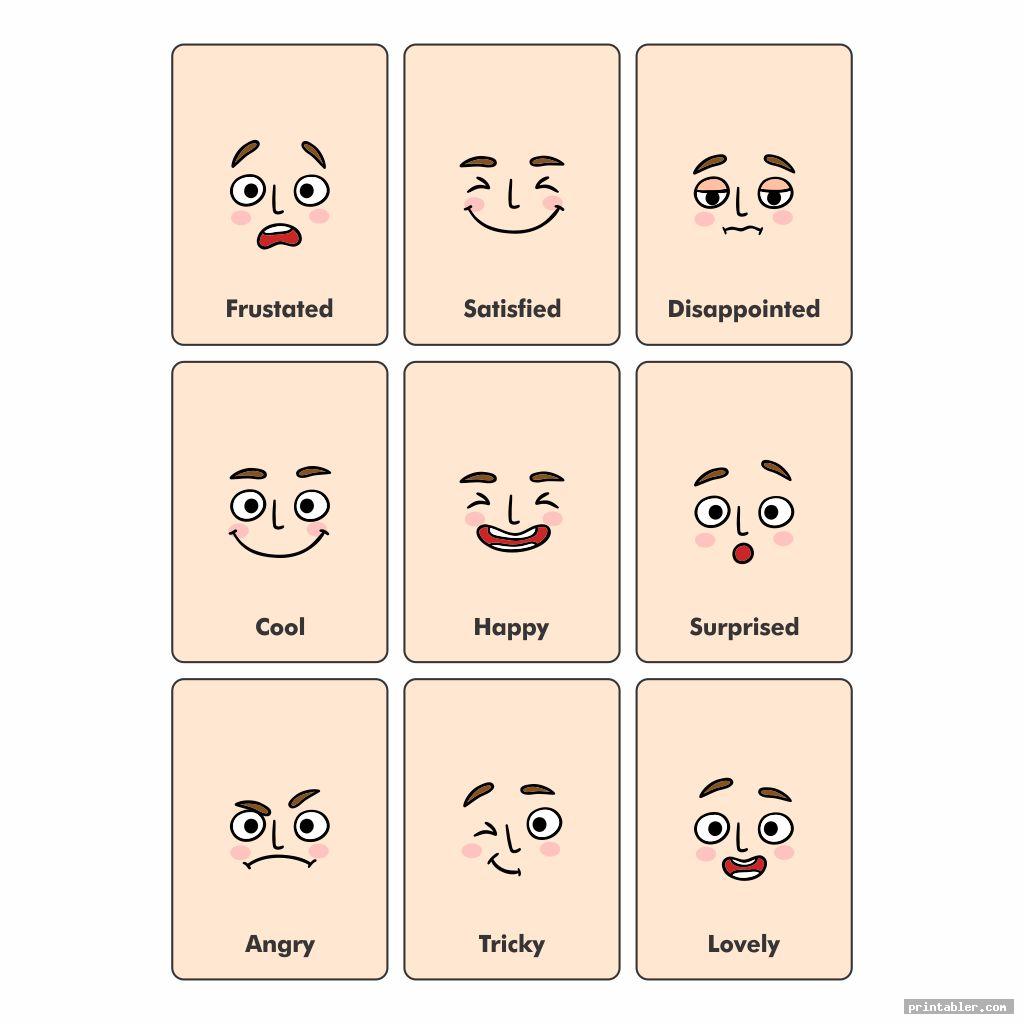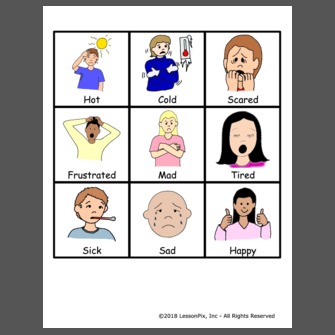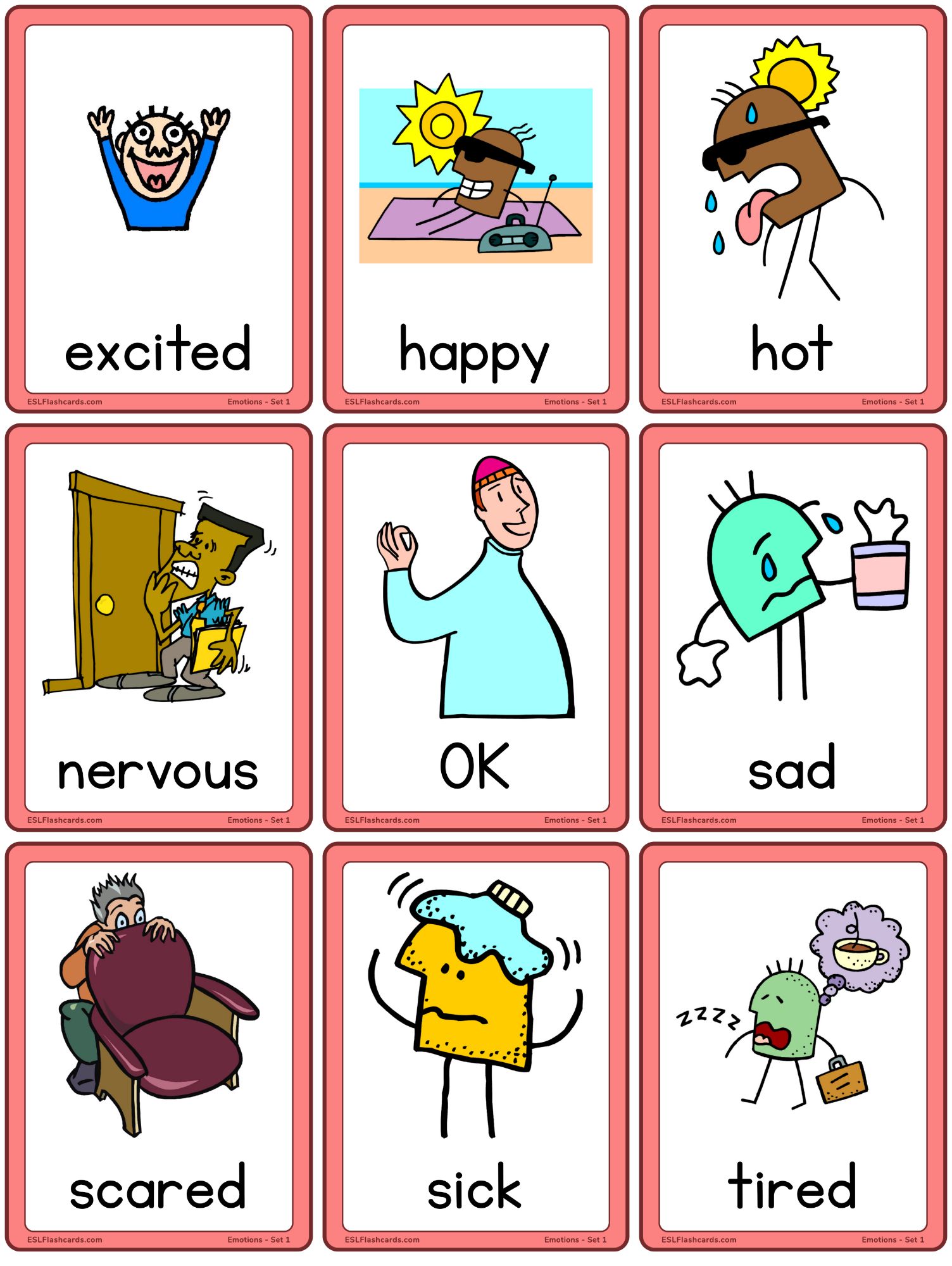

The Kids pack is suitable for children aged 3 right up to the age of 13, with each of the 26 cards offering something for all children within this age group. Make different facial expressions and choose which card best describes the face each person. Take turns acting out the emotion on the card. Find pictures from magazines relating to the feeling, or draw faces to illustrate the feeling. The Comfort Cards Kids pack is designed to assist your child in becoming more aware of their emotions and give them the tools to deal with them in a healthy way.Ī range of common emotional struggles are addressed, including Anger, jealousy, nervousness, rejection, sadness, fear, loneliness and many more. If you like, decorate the blank side of the cards. In fact, half of all the mental health conditions we experience at some point in our lives will have started by age 14.

The player who gets more pairs at the end wins. X Cut the feelings and and have children take turns drawing a feeling card. Place those pictures on key rings around the classroom to support children in the moment with identifying and responding to emotions.

If not, leave them facing down and let the next player take a turn. Activities with the Feeling Faces Cards X Select the feeling faces you want to introduce to children. They can be made at home in many ways, for example using: Clip art Photographs of your. If the cards match, keep them and proceed to turn another two. Emotion Cards are a set of cards that show many different emotions. Our brains are learning in childhood more than any other time in our lives, including forming positive or negative thought habits or behaviours. Place the cards facing down and take turns lifting any two cards. These colourful positive and negative images will help people explore and talk about their feelings and emotions. Often children who are acting out are seen as trouble makers but are actually just unable to properly recognise, process or communicate their emotional needs. COMFORTING CARDS FOR HEALTHY GROWING MINDSĪt some point, anxiety and other mental health problems affect 1 in 3 children, yet 80% never get help and the vast majority go unrecognised, only to suffer in silence. Along with emotional recognition, each card also identifies ways of alleviating difficult emotions through a helpful activity or technique, ensuring your child.


 0 kommentar(er)
0 kommentar(er)
